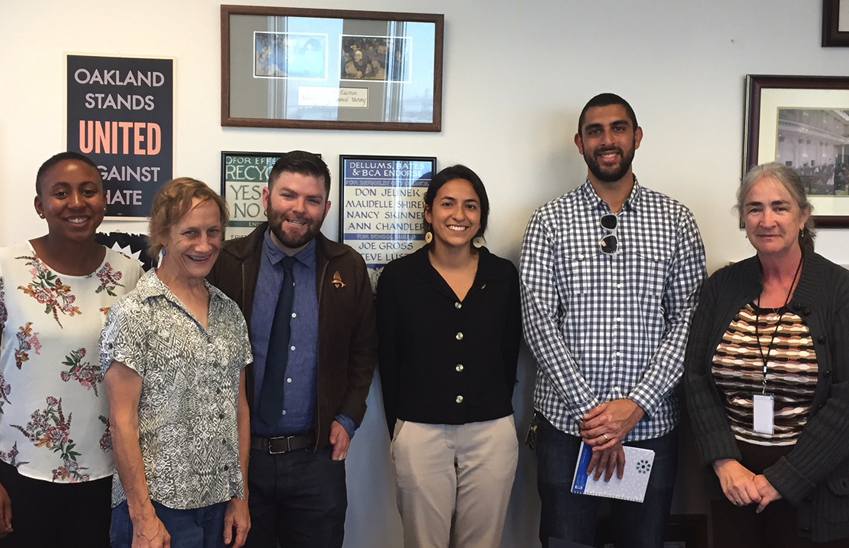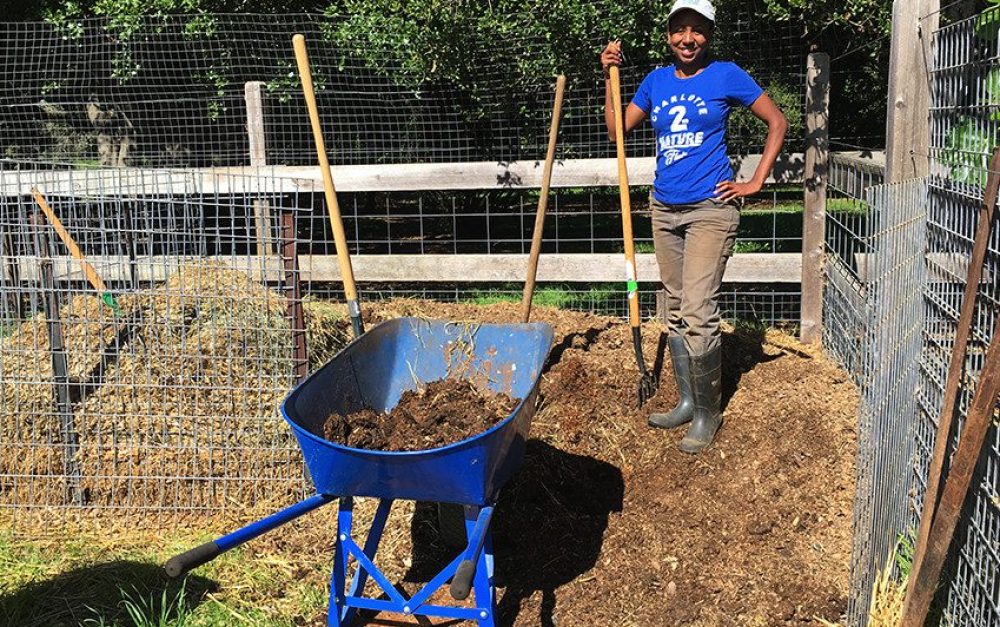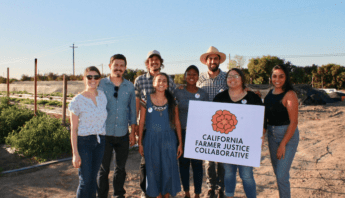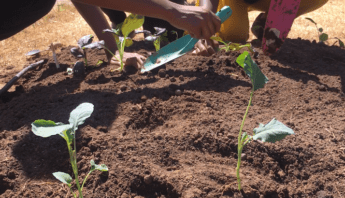Members of the California Farmer Justice Collaborative (CFJC) have been hard at work putting issues of farmer justice in front of local policymakers in California. In fact, earlier this month, CFJC members had a powerhouse meeting with California Assemblymember Robert Bonta and members of State Senator Nancy Skinner’s staff to discuss next steps for farmer justice in California.
Members of the California Farmer Justice Collaborative (CFJC) have been hard at work putting issues of farmer justice in front of local policymakers in California. In fact, earlier this month, CFJC members had a powerhouse meeting with California Assemblymember Robert Bonta and members of State Senator Nancy Skinner’s staff to discuss next steps for farmer justice in California.
Justice for farmers
The California Farmer Justice Collaborative is a collective of organizations working toward equity with and for historically underserved farmers in California. Some local players include Pesticide Action Network, Sustainable Economies Law Center, Mandela Marketplace, Farms to Grow, Planting Justice, Butterfly Movement, and the Oakland Food Policy Council. CFJC was formed in late 2016 to support implementation of the Farmer Equity Act (FEA).
This groundbreaking piece of legislation addresses historical inequalities in the California agricultural system. The FEA is bipartisan legislation that adds the federally-recognized definition of “Socially Disadvantaged Farmer and Rancher” to the California Food and Agricultural Code, thereby building legal infrastructure for the dissemination of resources and funds to address the specific needs of California’s socially disadvantaged farmers. Socially Disadvantaged Farmers and Ranchers include people who are African American, American Indian, Alaskan native, Hispanic, Asian-American, Native Hawaiian, and Pacific Islander. Further, the FEA calls for the hiring of a Farmer Equity Officer by the California Department of Food and Agriculture.
The first time I heard about the Farmer Equity Act was at the UC Santa Cruz Farm. I was a Second Year Apprentice at the Center for Agroecology & Sustainable Food Systems (CASFS), helping the first year students acclimate to the space as I continued building on the foundations of farming I had learned the previous year. I was part of a collective known as the Farmers of the Global Majority, a group of people of color working to build visibility, solidarity and connection to land and with each other. It was in this space that I was told about the FEA.
As a black farmer in California, the passing of the FEA felt very affirming. It indicated the state fully seeing us as farmers, valuing our accomplishments in this work and recognizing the challenges (often historic) that come along with that. As a Farmer Justice Fellow with the California Farmer Justice Collaborative, I am now able to directly influence the implementation of the FEA.
Next steps for FEA
FEA is now law – but the work is far from over. CFJC is working to make sure the act is implemented in a way that truly benefits disadvantaged farmers.
 Beth Spitler, UC Berkeley researcher and CFJC partner, has compiled a list of recommendations for FEA implementation on behalf of CFJC. Through 25 stakeholder interviews and a review of relevant literature and planning documents, the following steps for implementation were identified, among others:
Beth Spitler, UC Berkeley researcher and CFJC partner, has compiled a list of recommendations for FEA implementation on behalf of CFJC. Through 25 stakeholder interviews and a review of relevant literature and planning documents, the following steps for implementation were identified, among others:
- Build organizational capacity to work toward racial equity by including staff at all levels of hierarchy throughout the CDFA,
- Design outreach efforts to reach diverse demographics with different communication needs,
- And coordinate farmer equity efforts across state, local and federal governments and nonprofits to have collective impact toward equity and inclusion.
The work for farmer equity is ongoing – and we’re in the thick of it. For example, in our meeting earlier this month with State Senator Nancy Skinner’s staff members Eric Panzer and Sherry McCoy, CFJC members shared their stories as socially disadvantaged farmers and ranchers, and advocated for solutions to address the specific challenges they face while farming.
As we continue our work toward a food and farming system that works for all of us in California, I invite you to join us by sharing your farming successes and challenges – and how Farmer Equity Act implementation could support your work.






